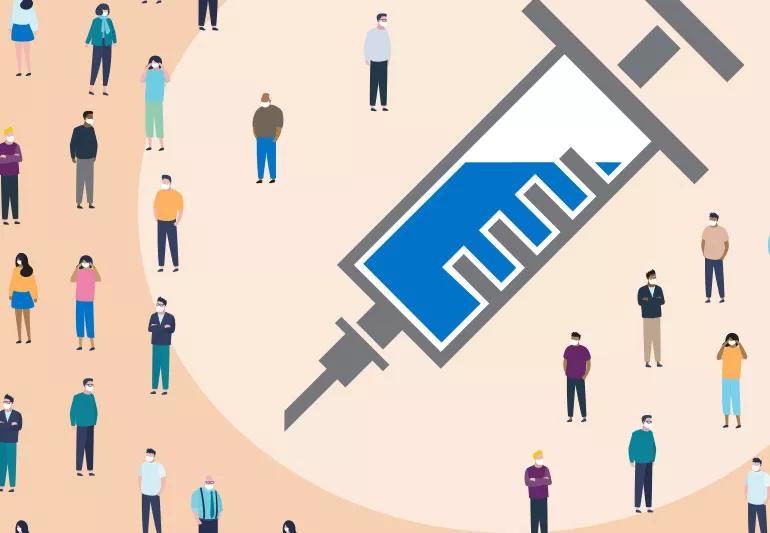Advertisement
The short answer from an immunity and pulmonary medicine physician

A: A vaccinated person acts as a barrier to slow and prevent the virus from continuing to spread. The ultimate end goal is to get as many people vaccinated as possible so that more people are protected. The entire population benefits from a high vaccination coverage, especially those who are most at risk and vulnerable.
Advertisement
Cleveland Clinic is a non-profit academic medical center. Advertising on our site helps support our mission. We do not endorse non-Cleveland Clinic products or services. Policy
Once a population reaches a point of collective immunity where the disease is no longer likely to spread, it reaches the herd immunity threshold. The estimate for COVID-19 is that roughly 70% to 85% of the population will need to be vaccinated to reach the herd immunity threshold, although this will likely be a moving target as we move into different stages of the pandemic. (In contrast, the flu needs between 33% and 44% vaccinated to reach the herd immunity threshold.)
It’s a safer place to live when you have a high vaccination rate and we hope that everyone will take the vaccine when they’re eligible to receive it.
– Serpil Erzurum, MD, Chair of the Lerner Research Institute.
Advertisement
Learn more about our editorial process.
Advertisement

From influenza and COVID-19 to pneumococcal, shingles and more, vaccines help keep you healthy

Children as young as 6 months should get vaccinated, but dosage guidelines depend on kids’ ages and past vaccines

Studies have shown promising results, but additional research is needed

Walking pneumonia is milder and doesn’t always require medication — but it’s also highly contagious

Infection and inflammation can cause you to lose your voice and have other voice changes until you’re fully healed

Baby’s caregivers should be up-to-date on flu, COVID-19 and Tdap vaccines to protect the newborn in their lives

A COVID-19 infection can bring on depression or anxiety months after physical symptoms go away

Just like the flu, COVID-19 continues to evolve every year with new and smarter variants

When you get bogged down with mental tasks, you can experience mood changes, sleeplessness and more

You can alternate these OTCs to help with pain management and fever reduction

Non-exercise activity thermogenesis is all the activity we do that’s not technically exercise but is still important to your health and well-being